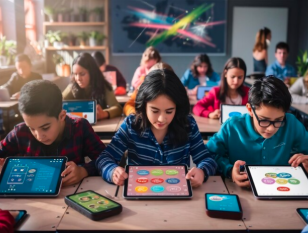In a fast-changing world, the ability to learn in flexible and adaptive ways is more valuable than ever. Whether you’re managing multiple subjects, switching between in-person and online classes, or simply trying to keep up with life’s surprises, having flexible study habits can make learning more manageable—and even more enjoyable. Here’s how to build habits that help you learn with greater ease and agility.
1. Mix Up Your Study Methods
Instead of always reading textbooks or reviewing notes, try combining different approaches. Watch a video, quiz yourself, explain the topic out loud, or teach it to someone else. Switching between methods helps your brain form stronger connections and keeps things interesting.
2. Embrace the Power of Spaced Practice
Rather than cramming all at once, spread your study sessions over several days. This approach, known as spaced practice, gives your brain time to rest and revisit material, making it easier to recall later—even if your schedule gets disrupted.
3. Study in Different Environments
Sometimes a small change of scenery can improve concentration and memory. Try studying in a quiet corner, a library, or even outside. Being comfortable learning in different spaces trains your brain to stay focused no matter where you are.
4. Be Open to Changing Plans
Life doesn’t always follow a perfect routine. Having a backup plan for study sessions or using shorter chunks of time when longer blocks aren’t available helps keep your learning on track without added stress.
5. Practice Self-Reflection
At the end of the week, take a few minutes to ask yourself: What worked well? What didn’t? Being aware of your learning preferences and challenges makes it easier to adapt your strategies moving forward.
6. Use Goal-Oriented Flexibility
Set clear goals for what you want to achieve, but allow yourself to adjust how you get there. For example, if you planned to read two chapters but feel too tired, switch to an educational podcast or do a short review quiz instead.
7. Stay Curious and Open-Minded
People who stay curious are often more adaptable learners. Keep asking questions, explore new topics, and don’t be afraid to try different techniques. Flexibility often begins with a willingness to learn in new ways.
Conclusion
Improving learning flexibility isn’t about being perfect—it’s about staying open, resilient, and willing to try something new when things don’t go as planned. By developing flexible study habits, you’re giving yourself the tools to thrive in any learning environment.














